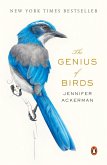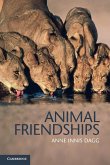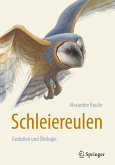There have been several key developments in the field of animal behaviour over the last 25 years. This book is a collection of autobiographies from 21 individuals who have had significant impacts on the field as we know it today.
Animal behaviour, as a discipline, has undergone several key transitions over the last 25 years, growing in both depth and breadth. Key advances have been made in behavioural ecology and socio-biology, in the development of studies integrating proximate and ultimate causation, in the integration of laboratory and field work, and in advances in theoretical work in areas such as sexual selection, foraging and life-history traits. Thus it is appropriate to relate the individual stories of those who have had significant impacts on the field as we know it today. Leaders in Animal Behaviour: The Second Generation is a collection of autobiographies from 21 individuals that have been peer selected, and have provided unique and important contributions to the field in the past 25 years.
Hinweis: Dieser Artikel kann nur an eine deutsche Lieferadresse ausgeliefert werden.
Animal behaviour, as a discipline, has undergone several key transitions over the last 25 years, growing in both depth and breadth. Key advances have been made in behavioural ecology and socio-biology, in the development of studies integrating proximate and ultimate causation, in the integration of laboratory and field work, and in advances in theoretical work in areas such as sexual selection, foraging and life-history traits. Thus it is appropriate to relate the individual stories of those who have had significant impacts on the field as we know it today. Leaders in Animal Behaviour: The Second Generation is a collection of autobiographies from 21 individuals that have been peer selected, and have provided unique and important contributions to the field in the past 25 years.
Hinweis: Dieser Artikel kann nur an eine deutsche Lieferadresse ausgeliefert werden.
"It is a fascinating collection of essays by a group who have all made (and many continue to make) significant contributions to this interdisciplinary field. I really enjoyed this book and would encourage anyone who wants a historical perspective on the field to read it. It would make a great starting point for a graduate seminar that traces the history of the development of major ideas in animal behavior and behavioral ecology since the 1960s."
Daniel T. Blumstein, The Quarterly Review of Biology
Daniel T. Blumstein, The Quarterly Review of Biology








